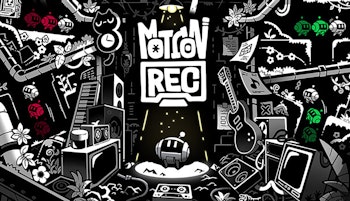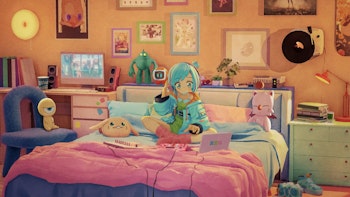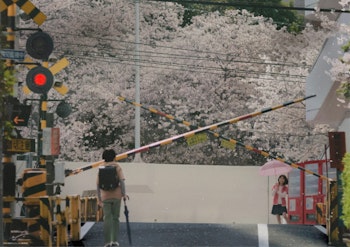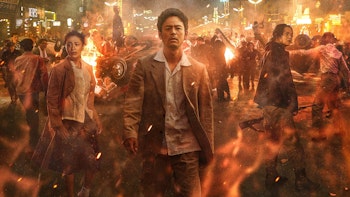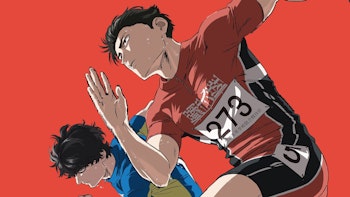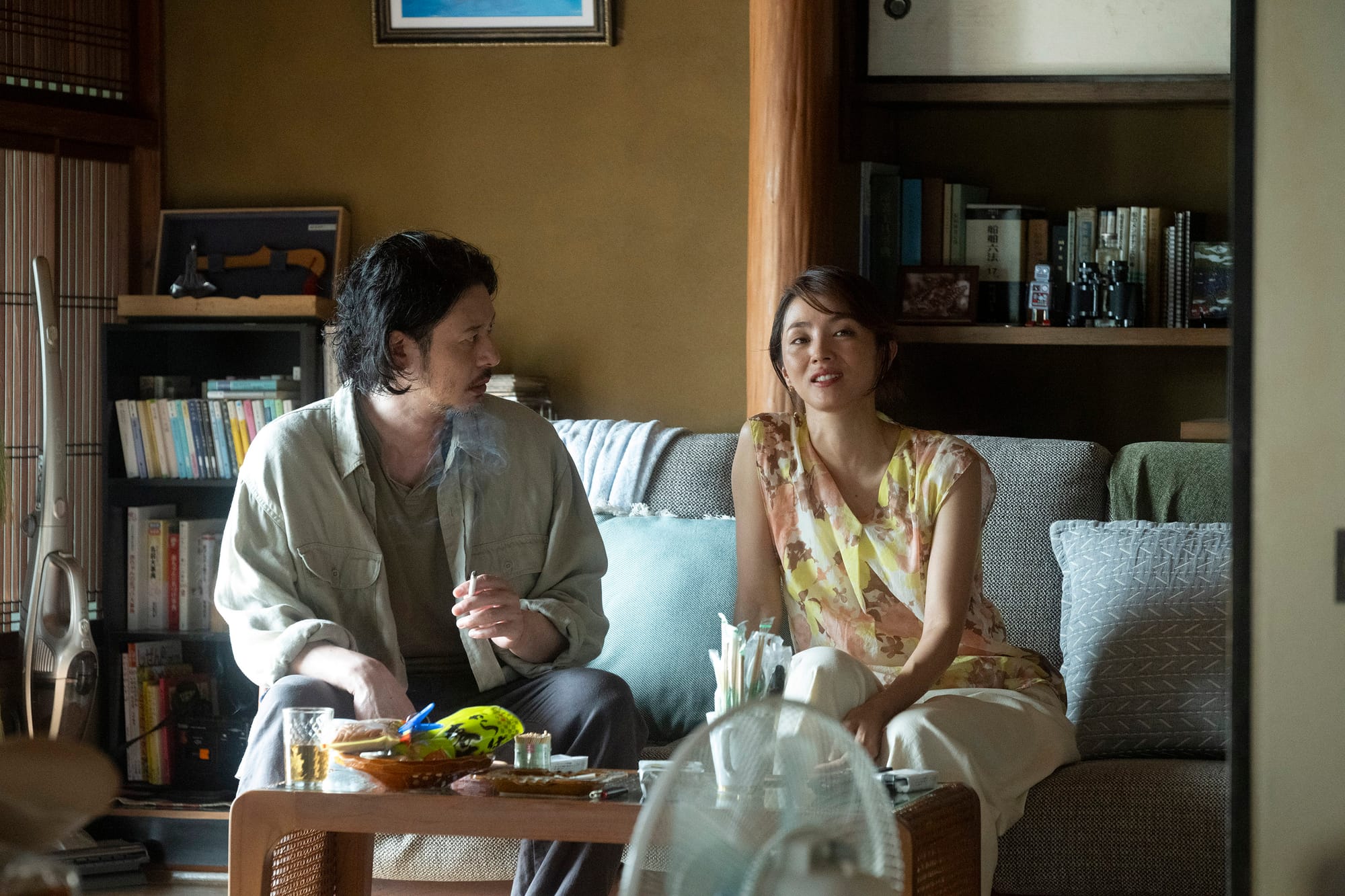
Grief is a challenging thing to overcome, and the journey to overcome that pain is hard. The initial pain might not even be the only thing you lose on that path to moving forwards. On Summer Sand centers on one person’s journey to overcoming this trauma, though I found it hard to empathize with this particular story when I often felt like an outsider observer to a person whose pain occurred and was resolved far from view.
We begin the film with Osamu Koura (Odagiri Joe) going about his daily routine a despondent soul, grieving the loss of his child as he trudges the hills of his hometown in Nagasaki. He’s in the midst of a divorce to his wife, and it’s in this moment that his sister suddenly leaves his 17-year-old niece Yuko Kawakami (Akari Takaishi) to live with him for a time while she handles other things. The two couldn’t be more different, the jaded older father and the innocent and naive younger relative, but as they each continue to live and move forwards they begin to learn more of the world, opening up to each other and the world around them in the process.
While the story of grief may feel somewhat more familiar than the unique person journey explored in one of director Shinya Tamada's previous films, I Am What I Am, the origins of this film are certainly unusual. On Summer Sand began as a play, far shorter than this story and told in vignettes with large gaps between each moment. The idea is that through these piecemeal windows into Koura’s life, we see the weight of the guilt over his child’s death slowly lift, and he finds a path forward. Supposedly, while rehearsing and staging the play for his theater company in 2022, he begun to think more about the gaps between, and upon realizing he could fill in the gaps and turn this story into a feature film, got to work on what would eventually become the final story.
And it resonated. The film took the top prize at the Shanghai International Film Festival, an award that elevated its profile in the weeks before release. Personally, I found the film muddled, both overly-performative yet unable to more deeply probe into the core of this grief. If anything, though I’m unable to compare to the original play having not seen it myself, many scenes felt padded and unnecessary, as though added for this movie adaptation. In any case, I felt following so closely to this journey made it more difficult to compare Koura’s changing attitudes to the world and the relationship he had to his guilt and grief in a way that would be more meaningfully-evolved and impactful with space to fill in the gaps ourselves. Less is more.
A perfect example of this comes roughly halfway into the film. After one night drinking with former colleagues, Koura returns home with them for one more drink, with Kawakami slinking off to bed as they continue to talk. The conversation suddenly escalates to angry shouting when the accusation of Koura not finding work since losing his job subsumed to grief comes up, causing a frantic hurling of insults and the risk of more until the scene is calmed. On paper it’s an effective scene in communicating the mix of care and worry felt by others to how he has been impacted by this loss in an outburst where the lingering unspoken tragedy twists this concern into frustration and outbursts, but it somewhat loses its impact when considered as a part of the broader film.
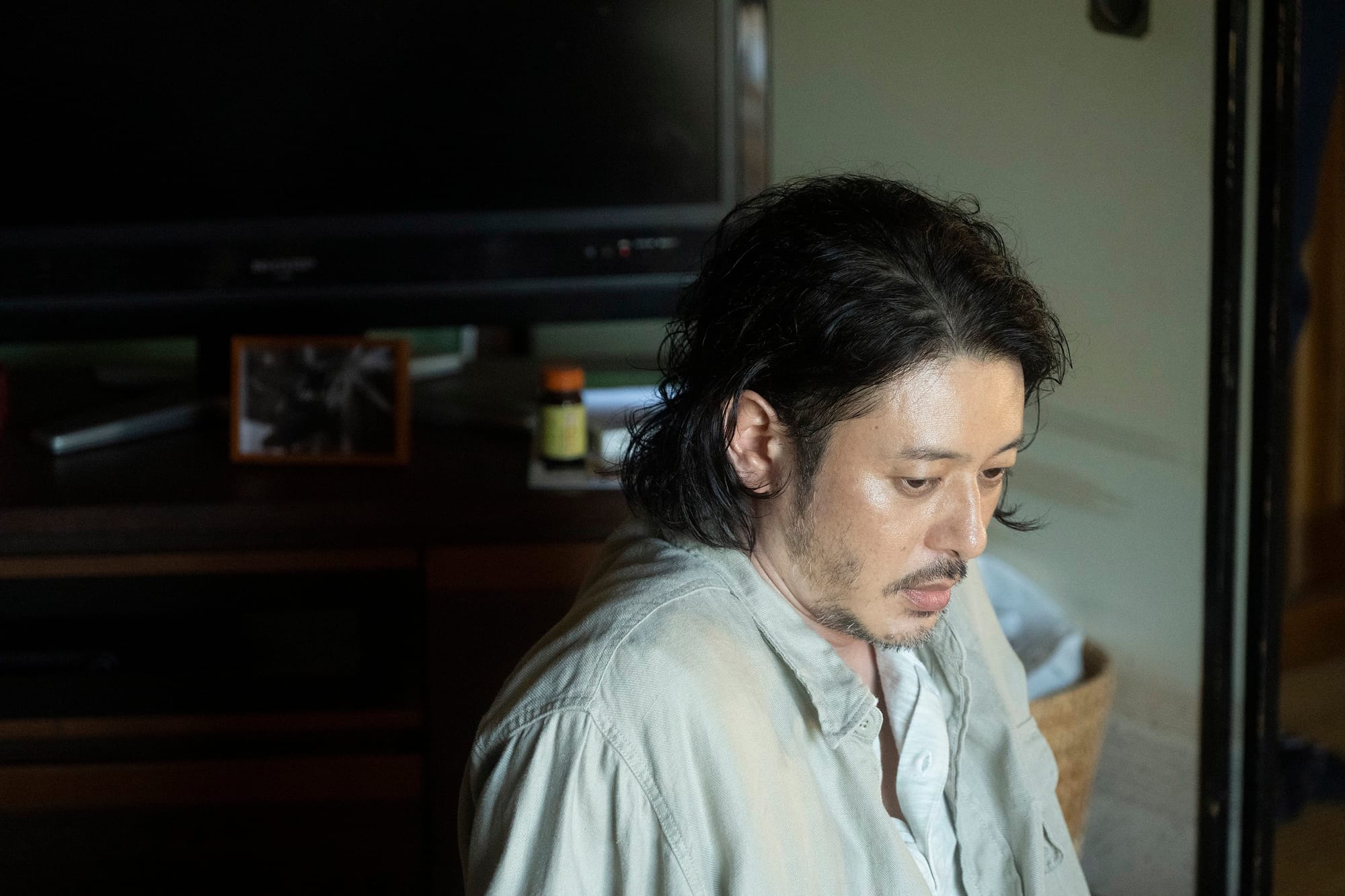
At one point the accusation he’s been lazy and is letting his life fall apart from the loss is tossed out, something that doesn’t really gel with the person we’ve seen so far. He’s in pain, sure, and he isn’t actively searching for a job, but he’s not languishing in pity either. We watch him often outside, trudging up and down the hills of the Nagasaki cityscape, keeping appearances if nothing else. It’s not even that the accusation is inaccurate, but it hardly matches the person we’ve come to know, someone whose true feelings are still inscrutable.
There are numerous cases where, in filling out the gaps in this story, certain scenes feel misaligned or the characterization never fully connects by the time the credits roll. The moment Koura chooses to open up about the circumstances surrounding his daughter’s death are a major turning point in beginning the healing process and helping him to find a fresh start for himself, a moment that clearly comes from the fact that the mutual understanding between himself and the socially-awkward yet astute niece allows him to do. It’s a relationship that shows to him that others can love him and that he’s not forsaken, something that allows him to reflect and see a future that comes after by reaching out to the people and world around him.
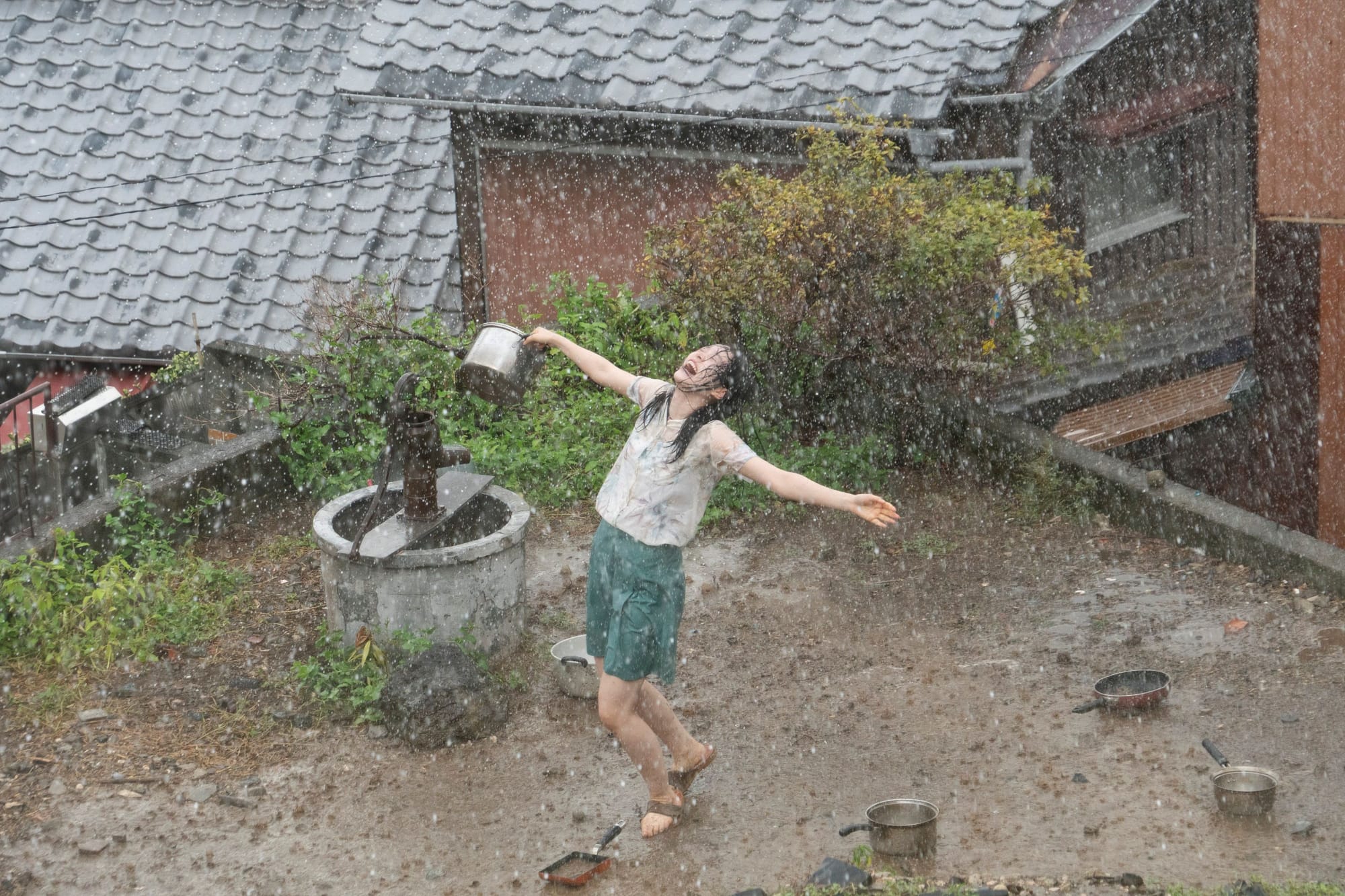
The issue is, while the two have their moments of co-habitation after he is suddenly burdened with caring for her, the two share mostly separate lives thanks to her work and the overbearing advances of Kawakami’s co-worker. In the original plot structure of the play where these scenes would play out with stretches of days or weeks left to audience imagination, a slow camaraderie can be filled in by our minds beyond the moments of jovial friendship they share on screen. When we see those gaps for ourselves and realize how little time they spend together, even if her growth to opening up and standing up for herself and Koura is nice, it never feels justified. Certainly not to the extent of opening up on a death he’s otherwise refused to talk about with others before that point, a stonewalling that even led for his marriage to come to an abusive end in divorce.
The film isn’t all bad. The decision to shoot on location in Nagasaki grounds the story wonderfully. In the way Koura has been worn down by the hand life has played him, we feel that in every step he takes up the hilly steps to his home, where every trip to the store for water or cigarettes is a trek that keeps him isolated from others. The heat, the tranquility that only makes the silent grief that much louder. Even the weary izakaya and thick local accents produce a sense of community that can’t be artificially recreated on a set or in the streets of Tokyo.
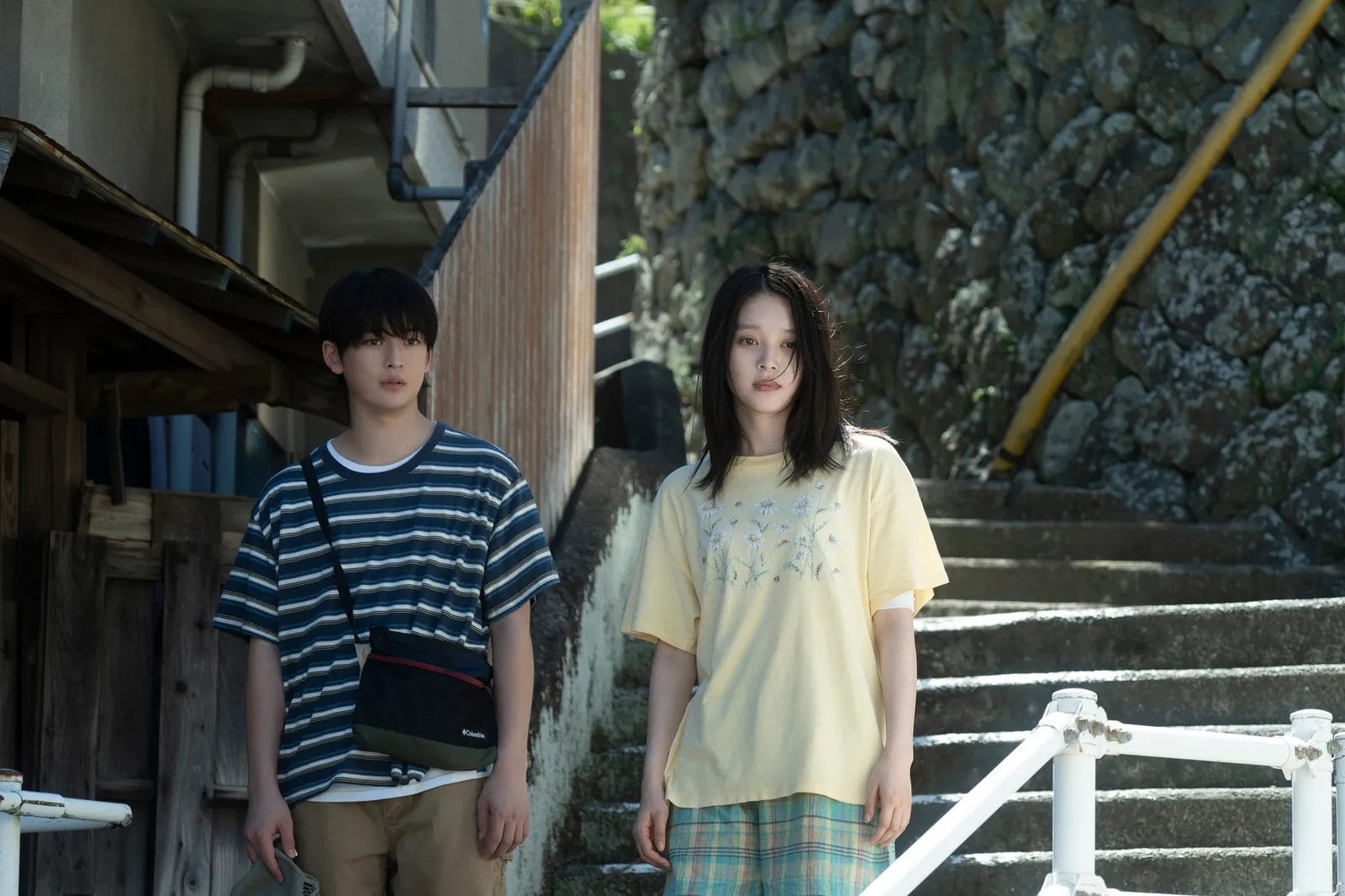
Odagiri Joe, for all his experience and age, truly feels like a man saddled with the grief of a lost child, and compared to her work in something like Baby Assassins, Akari Takaishi uses this opportunity to showcase a new and nuanced side to her talent that she hasn’t had the chance to express before.
Unfortunately, it’s the script that lets this down. In filling out the gaps the nuance and ambiguity is replaced by inconsistency. Despite more time with these characters we aren’t left closer or more in tune with their grief, and without the deliberate space that fulfills this ability to connect in the unspoken I was simply left cold.
